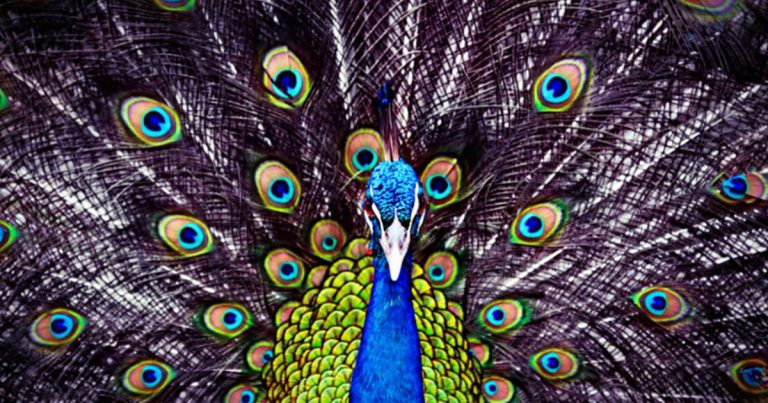Here are three tips to help singers overcome their anxieties and discover that hard-to-find magic ingredient – authenticity.
When it comes to helping singers find their authentic voice, vocal coach Dr Felix Graham likes to draw comparisons with that most striking of creatures, the peacock.
Renowned for proudly displaying its shimmering plumage, the peacock is, in many cultures, a symbol of strength and confidence.
“I like the peacock because it’s the grandest of animals,” Dr Graham says. “The peacock is like ‘yes, I’m fabulous, thank you for noticing’. And that’s how we should be. I don’t mean pridefully or to the detriment of others, but why would you apologise for who you are?
“Your voice is an artefact of everything you are: your family, history, experiences, personality, loves and beliefs. All those things are what make your voice beautiful, wonderful and unique. Why the hell would you lock it up in a little box? Let it come out. Be a peacock.”
The search for authenticity
Dr Graham, a New York-based vocal coach and researcher who studied at Columbia University, spent many years searching for his authentic voice. He navigated gender issues (“full disclosure, I am an intersex person”) that had a knock-on effect on his voice.
“I stuffed everything under the rug and tried to make it work,” he says. “But it didn’t work because it wasn’t authentic.
“I look back and think how different my life would have been if, at any point, somebody had just said, ‘Do you like your voice? You don’t seem to like your voice. Why is that?’. My entire internal landscape, my technique, everything would have changed.”
These days Dr Graham works as a singing-voice specialist, guiding both cis and trans clients in reconciling their voice and personal identity and addressing functional voice disorders.
He calls his teaching philosophy #peacockpedagogy. Here are his three top tips for finding your authentic voice.
1 Remind yourself that you cannot die from embarrassment
“If it were possible to die from embarrassment, I wouldn’t have made it past the age of 11,” says Dr Graham. “You can make weird noises, you can play around – and you aren’t going to die from it.
“You need to retrain your Lizard Brain [the part of the brain that is primitive and irrational] to understand and believe that the singing tasks that feel so scary are not actually life-threatening.”
2 Let go of false dignity
“Dignity is inherent to the human condition, but you don’t have to be dignified to have dignity. A lot of times, we avoid things that are authentic because we don’t think of them as being dignified. To me, that is a false dichotomy.
“We’re told ‘don’t act out, don’t be weird, because bad things might happen’. The fear that ‘bad things might happen’ is leveraged against us societally to keep us from being more authentic and to keep us from questioning.
“Allow yourself the privilege and joy of being silly and making noise. Be curious. If you allow yourself to be curious, silly and playful, you’ll get a lot further, a lot faster.”
3 Remember that you only get one life
“That’s it. Right? Regardless of your beliefs about the afterlife, you get one life. Do you want to spend it being someone else’s voice? Why would you not want to be you?”
Listen to a full-length interview with Dr Graham on the Singing Teachers Talk podcast. In the show, Dr Graham discusses:
- His vocal journey.
- How to promote inclusiveness in a teaching studio.
- The rights and wrongs of vocal terminology.




